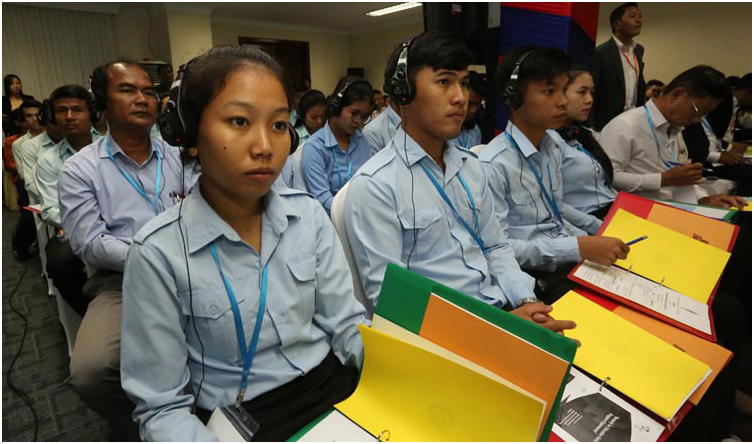Learning a second or foreign language has numerous advantages. Although it is challenging and frustrating for some, several people have proven that it is possible to master a second language like English through different techniques and effective strategies.
Most people consider English to be a global language because it is the one language that is spoken and understood by the majority of the population in almost every region of the world. According to data available online, there are approximately 400 million native English speakers, and almost twice as many speak it as a second language, making English as one of the most widely spoken languages in the world.

One man’s way
How do Cambodians learn English language and what techniques they apply to master it? Zach, a father of two, shared his English language learning journey and the effective techniques he
had applied in achieving an
almost native level fluency in just a few years.
Zach started learning English twenty years ago when he was 13 years old. Although he had attended some formal English learning classes, he believes he is a self-taught individual who relied on English movies and native English speakers.
“I studied basics of English from a Khmer teacher when I was in school. I learned how to spell words, and used to practise them at home alone and with Western visitors. Missionaries from Western and Asian countries used to visit our province, and I started helping them as an interpreter, from Khmer to English and vice versa,” said Zach.

That was one of Zach’s major exposures to the English language. The other means of learning were watching movies and cartoons which helped him to enrich his English vocabulary.
“As a child, my main motivation for learning English was to understand and interact with my foreigner friends. I struggled to understand what they were saying when we played together. I wanted to communicate with them, and that made me learn
the language when I went to school,” said Zach.
Effective strategies
Zach said that he started with learning basic English words while also learning how to spell and pronounce them properly. He would then practise the words by using them in different sentences.
“We had an exercise where we would have one word and use it in ten different sentences. Then I would practise saying those sentences over and over again until I mastered them. I would listen to various videos continuously until I actually adapted the American accent,” said Zach.
Zach said he initially had a hard time understanding the American accent, that’s why he focused more on learning it by watching American movies.
“When I moved to Phnom Penh, almost every night I would watch American movies. First with subtitles and then without the subtitles,” said Zach.
Even though it may have costed him a bit, Zach invested in his language learning journey and established habits that would give him the chance to be exposed more to the English language.

“After work, we would also go to the riverside to eat some ice cream and snacks. I would hang out with my friends from America, Australia, and Canada and it would give me a chance to keep practising my English. Most of my Western friends are from workplace or church,” shared Zach.
Bilingual family
Zach said at home, he uses both Khmer and English to communicate with his family members. His two sons are exposed to English at an early age, according to him.
“They are also doing the things that I once did when I was a kid. They watch cartoons in English, they keep repeating words and sentences in English, I would also speak to them in English most of the time,” said Zach.
Zach says he has understood
the importance of having a solid foundation in the English language from a young age. However, he humbly admitted that he still doesn’t consider himself fluent when it comes to speaking as there are
still so many things to learn about the English language.
When asked about what his advice is for fellow Cambodians who desire to improve their English-speaking skills, Zach said, “They need to practise. They should stop focusing too much on the grammar and just practise speaking as much as they can.
“They should practise more, talk more, and read more. The more they read, the more they understand. The more they read, the more ideas they can write,” said Zach.
Every person learns a language differently, and there isn’t a “one size fits all” technique. However, learning from Zach’s experiences, these simple strategies may be applied as well for those who are trying to find faster and better ways in improving their English language skills.







